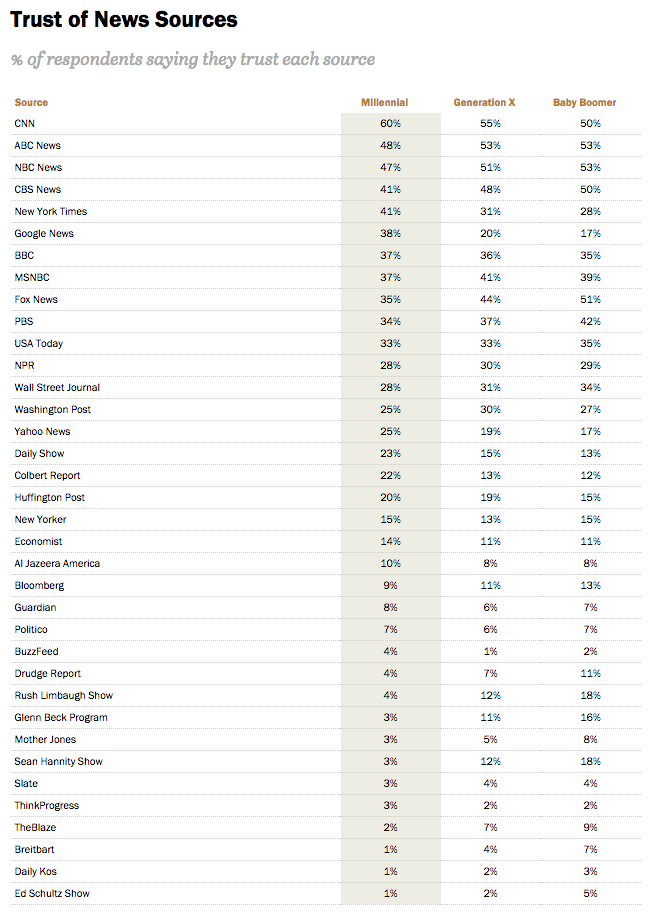Jotted notes
Two unconnected thoughts:
1) I may have been slightly tough on BuzzFeed.
If there’s one thing I wish I had worded slightly differently, it’s the last line:
And given BuzzFeed’s proclivity for running afoul of conventional journalistic ethics, it’s not too far-fetched to assume they’d eventually monetize their research by selling ‘gems’ directly to the opposition candidates themselves.
To be clear, I don’t think my intent was entirely wrong: it isn’t too far-fetched to wonder if this might happen. But assuming and wondering are two different things, and I would like to retroactively change the wording slightly. (Obviously, I’ll leave the original text intact, but let this note serve as my wish to revise it slightly.)
I would also like to engage in some throat-clearing, however. Today the Pew Research Center released the results of a study on media habits across generational groups: millennials, Generation X-ers, and baby boomers. The results are particularly sobering for BuzzFeed:
Among millennials, who – according to the study – are more familiar with BuzzFeed’s oeuvre than Generation X-ers or baby boomers, an abysmal 4% say they trust the site. Of course, some of this can be attributed to lack of awareness: only 40% of millennials have even heard of BuzzFeed, a percentage less than half that of The New York Times, for example.
But not all of it. To take that same example, 82% of millennials have heard of The New York Times, and exactly half – 41% – trust it. For BuzzFeed, that ratio is not 50%, but 10%. A similar story can be formed from the question of whom millennials distrust: 11% distrust the Times (roughly 13% of those who’ve heard of it), but 14% distrust BuzzFeed: 35% of all millennials who’ve heard of the site.
There is a reason for this. It starts with BuzzFeed’s beginnings as a purveyor of cat listicles and extends through a range of questionable activities including removing posts critical of brand advertisers (although the site’s editor-in-chief, Ben Smith, maintains that the advertising relationship was not the cause), quietly deleting more than 4,000 posts over time, and even modifying the site’s ‘robots.txt’ file to hide specific posts in Google search results.
These are not the actions of a trustworthy news organization. As such, millennials continue to distrust it.
2) On a totally unrelated note, this morning Adam Liptak of the aforementioned New York Times posted a piece that detailed the increasingly public lives of the Supreme Court justices. The article contains a couple brief quotes by me, as well as (far more interesting and numerous) ones by Victoria Kwan, describing the work of SCOTUS Map.
Additionally, Liptak covers a new study by election law expert Rick Hasen, including a very entertaining introduction of the ‘Celebrity Index’ of justices on the Supreme Court. The whole thing is highly worth a read, in my (obviously biased) opinion.
